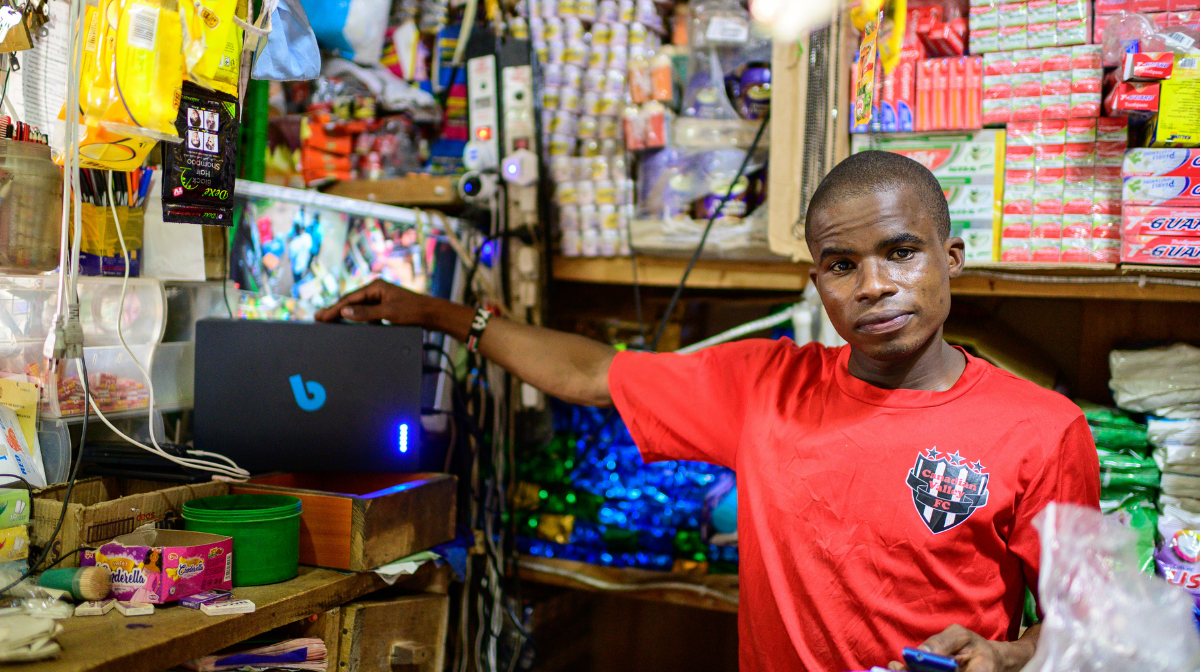Covid “has exacerbated some hard truths about the inequality of energy access,” says Nick Hurd, Senior Adviser, Bboxx and former UK Government Minister
London, Wednesday 22nd September 2021 – Bboxx, a next generation utility, and UCL’s Engineering for International Development Centre have published a new report Off-Grid Energy and Economic Prosperity. It uncovers the wealth of evidence on the relationship between access to off-grid electricity and economic prosperity in Sub-Saharan Africa. It highlights the urgent need for governments and policymakers to prioritise off-grid solar in a bid to accelerate inclusive and sustainable economic development.
Off-grid Solar Home Systems and mini-grids are essential to provide energy access in rural communities in Sub-Saharan Africa. The research highlights how off-grid energy access enhances living standards in local rural economies, powers community services like education and healthcare, improves household and business financial capacity and generates greater employment levels and contributions to GDP.
This latest report makes the following three recommendations to further strengthen the relationship between off-grid electricity access and economic well-being and prosperity, all necessary to improve economic resilience post-Covid and beyond:
1. Governments need to focus on investment in the off-grid energy sector
Inequality in energy access in Sub-Saharan Africa that was rife prior to the pandemic must not be exacerbated. Governments must design supportive policy environments to ensure consumers struggling are met with leniency in bill payments or a reduction in energy costs. Subsidies are essential. Incentives for renewables will stimulate local economic development, regain lost jobs and drive the creation of new jobs.
2. Incorporate productive use of electricity into government electrification strategies
Productive use of electricity i.e. using electricity for commercial, agricultural or industrial uses, can reinforce the creation and improvement of local value chains, diversify livelihoods and reduce vulnerability to external shocks. While in rural areas in Sub-Saharan Africa, solar electricity is largely used for lighting or television, to truly accelerate local development, governments should develop policies that go beyond these basic needs to also include local productive activities. This will accelerate economic growth.
3. Greater attention is needed to promote gender-inclusive energy policies
Energy policies need to actively take into account women’s concerns in rural Sub-Saharan Africa. It is essential to incorporate women’s experiences into policymaking and project planning to foster more inclusive economic prosperity from energy.
Specifically, gender-focused energy strategies should focus on enhancing financial inclusion and access to productive economic activities.
Nick Hurd, Senior Adviser to Bboxx, commented: “This report makes clear what access to energy means in terms of economic development and the opportunity to transform lives. All the talk of building back better from Covid needs to confront the hard truths about the terrible inequality of energy access, especially in Sub-Saharan Africa. Providing universal access to clean energy is a crucial catalyst for shaping the green and inclusive recovery that we must deliver.
“We have the tools to reach everyone, both on-grid and off-grid. All that is lacking is the collective leadership to seize the opportunity. Expressing concern about the impact of Covid on the UN Sustainable Development Goals is not enough. We need to convert talk into real world action, with the next milestone being COP 26 – now just months away.”
Dr. Priti Parikh at UCL, added: “We have found extensive evidence of the irrefutable link between greater access to solar energy in off-grid communities in Sub-Saharan Africa and economic development and prosperity. There is no doubt that off-grid solar has the enormous potential to support local economic growth in communities and SMEs.
“It is now vital that policies are developed and implemented on a local, national and inter-governmental level to ensure that off-grid solar energy remains front and centre. Translating political commitments into tangible steps will ensure better economic well-being for all.”
ENDS
About Bboxx
Bboxx is a next generation utility, transforming lives and unlocking potential through access to energy. Bboxx manufactures, distributes and finances decentralised solar powered systems in developing countries. It is scaling through forging strategic partnerships and its innovative technology Bboxx Pulse®, a comprehensive management platform using IoT technology. Through affordable, reliable, and clean utility provision, Bboxx is bringing people into the digital economy, creating new markets, and enabling economic development in off-grid communities and those living without a reliable grid connection. The company is positively impacting the lives of more than 1.8 million people with its products and services in over 27 markets, directly contributing to 11 of the 17 United Nations Sustainable Development Goals.
So far, Bboxx has deployed more than 500,000 solar home systems. Bboxx has over 900 staff across nine offices including in the Democratic Republic of Congo, Kenya, Rwanda, and Togo, with its head office in the UK and its manufacturing operations in China. In 2019, Bboxx was the winner of the Zayed Sustainability Prize in the Energy category – testament to the way the company is making a meaningful difference to people’s lives around the world. You can find further information about Bboxx on its website at – https://www.bboxx.com/
For more information please contact:
Ross Gillam
Instinctif Partners
Email: bboxx@instinctif.com
Phone: +44 (0) 7457 2020
About UCL Engineering for International Development Centre (EFID)
EFID works to impact infrastructure (energy, water and sanitation) services for marginalised people. The team specialise in interdisciplinary evidence based research to influence policy and
practice. With a global fooprint the team works to deliver sustainable and resilient infrastructure in resource challenged settings. Ultimately the goal is to support societal development through engineering solutions which addresses the Sustainable Development Goals.
This study is founded on a long standing collaboration between the centre and Bboxx. Dr. Parikh who heads the centre was awarded the prestigious BBOXX/Royal Academy of Engineering Senior Research Fellowship to improve access to energy in Sub-Saharan Africa. Dr. Parikh and team combine consumer behaviour studies with machine learning modelling to reduce energy poverty and inform the future of off-grid energy sector.
For more information please contact:
Dr. Priti Parikh
Bartlett School of Sustainable Construction Email: priti.parikh@ucl.ac.uk


